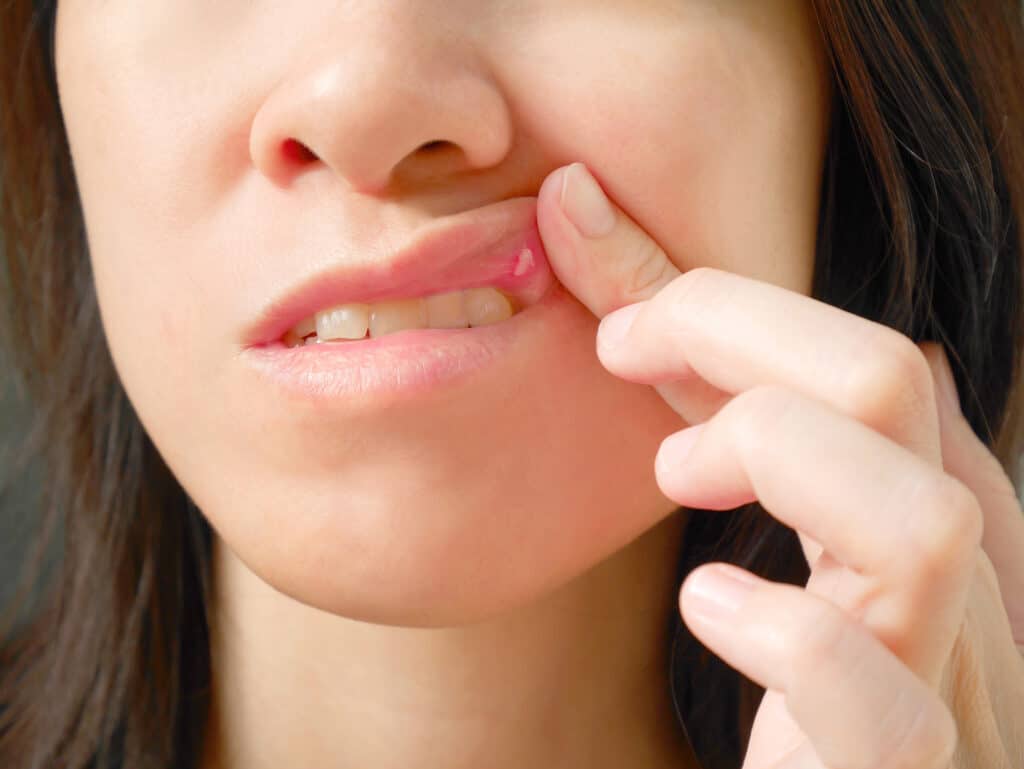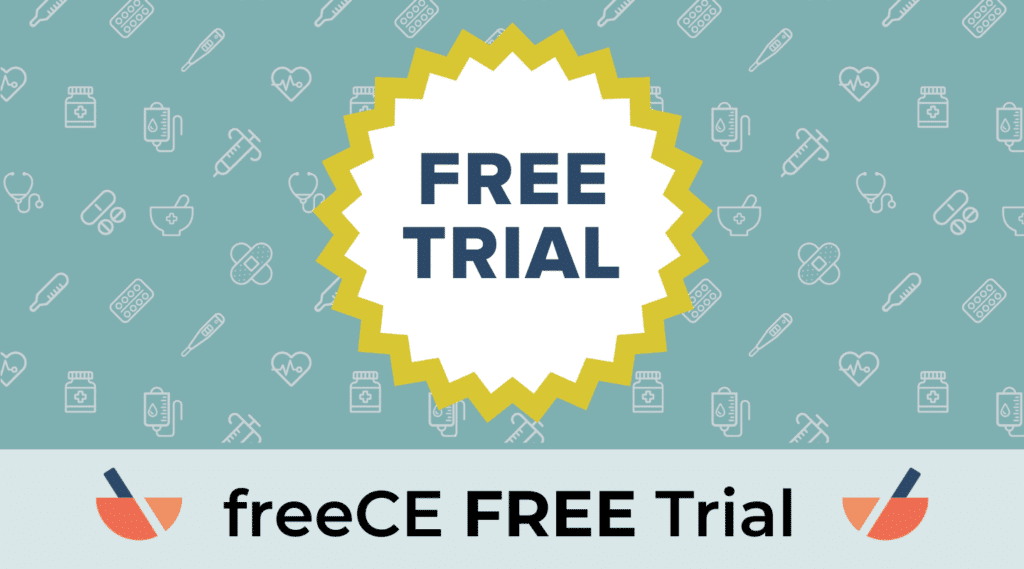Overview of Canker and Cold Sores, Including Treatments
Pete Kreckel, microCE
Canker sores (Aphthous ulcers)
Everyone knows that canker sores are caused by a virus…except they are not!! The herpes virus is well defined by HSV-1 and HSV-2, but there is no virus implicated in canker sores.
I often wonder why we do not have a vaccine for Herpes Type-1 and Type-2. The World Health Organization has an interest in wiping out sexually transmitted infections, but little progress has been made on herpes vaccination.
Most of the STI’s that are caused by bacteria are well handled by our current antibiotic therapy. The best we can do with herpes is to manage the outbreaks and provide suppressive therapy.
Table of Contents
Aphthous ulcers are painful, round shallow lesions with a grayish base. Recurrent aphthous stomatitis (RAS) is the most common cause of mouth ulcers. Some patients may have only two to four outbreaks per year, while others may have almost continuous eruptions. Aphthous ulcers are seen most frequently in childhood and adolescence and decrease in frequency in adulthood. There seems to be a familial tendency. It is not caused by any infectious agent (virus or bacteria). They cannot be spread through saliva. There seems to be an association between recurrent cases of canker sores and an overactive immune system, so topical immunosuppressant medications (such as topical corticosteroids) are of benefit.
- Exacerbated by trauma, hormonal factors, and emotional stress. Avoid trauma to mouth when brushing teeth, by using a soft toothbrush. Avoid eating “sharp” foods like nachos and chips to minimize oral trauma. Cover sharp edges of braces with dental wax.
- Sensitivity to chocolate, coffee, strawberries, eggs, nuts, cheese, or spicy or acidic foods might cause increased risk of canker sores.
- Toothpaste containing sodium lauryl sulfate should be avoided in at risk patients.
Over the counter treatment options include:
- Benzocaine: Zilactin-B® forms a protective film over the lesion and can be applied every 6 hours. Benzocaine helps decrease the pain but should be avoided in kids under age 2 because of methemoglobinemia.
- Peroxyl® rinse (peroxide) to cleanse the sores
- Deficiency in the “blood building” supplements such as folate (folic acid), vitamin B-6, vitamin B-12 or zinc. Vitamin B-12 sublingual 1000mcg dissolved in the mouth may be effective in treatment/prevention of canker sores. (http://emedicine.medscape.com/article/867080-treatment)
Home remedies include:
- Applying ice chips directly to the ulcer
- Rinsing mouth with a baking soda solution: 1 teaspoonful of baking soda to ½ cup of warm water.
- Dab a small amount of milk of magnesia to the canker sore a few times per day.
IF all else fails, Rx treatment of canker sores: Because corticosteroids inhibit cell proliferation and is immunosuppressive, antiproliferative, and anti-inflammatory they are the mainstay for treatment of aphthous ulcers.
- Dexamethasone elixir 0.5mg/5mL. Rinse and spit out.
- Triamcinolone dental paste 0.1%
- Magic Mouthwash: Benadryl/Maalox/lidocaine2% viscous—equal parts
- Chlorhexidine gluconate mouth rinses reduce the severity and pain of ulceration but do not affect the frequency.
COLD SORES:
Cold sores are a quite common complaint year-round but seems to become more prevalent during the winter where low humidity levels and drying winds affect the facial skin. Cold sores or herpes labialis are caused by the Herpes simplex virus Type-1 and is abbreviated as HSV-1. Recurrent herpes simplex labialis occurs in 20% – 40% of the US population. It is estimated that 67% of the population are affected by the virus. Eight of the more than 80 known herpesviruses are human pathogens. Although the disease is self-limiting in the immunocompetent, patients seek treatment because of the discomfort and visibility of a recurrent lesion.
- The virus: Reactivation of HSV-1 occurs in the trigeminal sensory ganglion. This leads to the occasional breakout of the virus where the site of infection is usually the border of the lips. Patients with oral herpes infection should be informed that HSV-1 can be transmitted through oral sex to their uninfected partner resulting in genital ulcers. 50% of new cases of genital lesions in the developed world are caused by HSV-1
Over the Counter treatment for Cold Sores
- Zilactin® (benzyl alcohol 10%) which is OTC contains hydroxypropyl cellulose which is a bioadhesive that adheres to mucus membranes and may be used to protect lesions from irritants for up to six hours. Remind patients not to peel off the adhesive film. Also, available as Zilactin-B which contains benzocaine 10% is for use inside the mouth to help numb the lesions.
- Abreva® contains docosanol. It needs to be applied five times daily for a maximum of 10 days. Complete treatment resulted in decreased duration of the lesion by only 18 hours. Must begin use at first sign of tingling (prodromal period). Mechanism: inhibiting fusion between the herpes virus and human cell plasma membrane. The end result is that the virus can’t enter into the host cells and multiply.
- Sunscreens: some patients will experience cold sores when they are exposed to large doses of ultraviolet light. Sunscreens are of great benefit to these patients. Sunscreen should be applied before direct UV exposure.
- Emollients/Protectants: white petrolatum, zinc oxide, cocoa butter relieve cracking and dryness. They do nothing to speed up healing. Many OTC products are seen in combination with camphor, thymol and benzocaine. Avoid any products that contain salicylic acid that can further break down the affected skin. Many of these products contain sunscreens as well.
- Lysine: dosed as 1000mg one to three times daily; may show a decrease of frequency of recurrence and severity of the lesions.
Patient Care Points
- When applying medicine to cold sores, gently dab the medicine on with a clean cotton-tipped swab.
- Comorbid conditions that require treatment, as opposed to “just tough it out”. Treatment is highly recommended if you get a cold sore and have:
- Atopic dermatitis (also called eczema)- usually starts in younger children.
- Sores near a patient’s eyes
- Multiple cold sores
- Significant pain
- Sores that spread to another part of your body, such as your hands or genitals.
- HIV, AIDS, cancer, or another disease that weakens your immune system.
- Cancer patients and those receiving chemotherapy
- To take immunosuppressive agents to control severe psoriasis or prevent organ rejection
- Cold sores frequently
- An outbreak that lasts more than two weeks
But wait… there’s more. Here are some other infections caused by the Herpes simplex virus, that are not related to the mouth or genitals.
- Herpetic whitlow refers to a topical herpetic infection at the end of the fingers. This condition can affect anyone, especially often affecting healthcare workers, children with primary oral herpes and adults with genital herpes. It results from direct inoculation of the involved finger through the abraded skin by either HSV1 or HSV2
- Herpes gladiatorum as the name implies is a condition that affects athletes that participate in direct contact sports. Soccer, wrestling, and football players are at risk of getting “wrestler’s herpes” caused by direct contact with infected lesions from other participants.
- Eczema herpeticum (KVE-Kaposi’s varicelliform eruption) is when the herpes virus bypasses the nerve endings and directly attacks the compromised skin. When oral or perioral HSV infection disseminates and spreads to the skin, this may appear as impetigo, with ragged borders. KVE may complicate a cutaneous burn, preexisting atopic dermatitis, or cosmetic procedures in the head and neck region.
Have a great day on the bench!!







